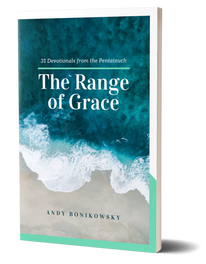There are at least two reasons to pay close attention to Elijah’s prayer life. One is because God highlights it and the other is that it is actually quite remarkable!
Now many of us have memorized James’ phrase, “the effectual, fervent prayer...”, we have read books on it, and we have heard messages from it. But have we personally paid attention to it?
Let’s do that now, taking a few minutes to look back at Elijah’s prayer life.
Here are a few general observations that should catch our attention.
First, there is an array of kinds of prayer. Not a full array, but still a fairly broad one. There are private ones and public ones. There are peaceful ones and violent ones. There are ones for provision and others for destruction. Prayer then, is good for all areas of life.
In the second place, not all of his prayers were answered as he wanted. One, at least, appears to have been ignored. Or, if that’s too painful an answer, it was met with a “No”. He asked God to let him die, but no bolt of lightning came from heaven. Here there is a lesson too. God’s perspective was higher, much higher, than Elijah’s, and the overall picture reveals that His way was perfect for the situation.
And then, the one I find particularly interesting — the timing of the divine answers.
Why on earth does God sometimes answer immediately and at other times only after repeated prayers? Most of Elijah’s recorded prayers seem to have been answered right away, like for drought or fire; others distinctly were not. In fact, there is a specific emphasis made on how many times he had to pray and how odd the positions were. Three prayers were cried out as he stretched on top of the widow’s son; seven times he bowed his head between is knees before the rainstorm would come!
Again, why did the prophet have to go through all of this? What was going on?
Quite obviously, God was thinking way beyond what anyone else had in mind. He was setting up a timeless course on prayer, one that through the ages would never expire. And just in case, 900 years later, He would post a New Testament reminder (James 5:16-17) to make sure it didn’t get totally eclipsed by the various writings of prophets and disciples. These were prayer tips He wanted every successive generation of His children to learn. And what were some of them?
That God’s plan was the ultimate one, not Elijah’s.
That God’s goals were the priority, not Elijah’s.
That God’s timing was what mattered, not Elijah’s.
This last point is perhaps the one I most often need to remember. Are there not prayer requests that I have repeated to God many times? Maybe not three or seven times, but 300 or 7000 times. Do I not have burdens on my heart for which I have wondered, “Why, oh Lord? Why so long? Why do I have to keep asking for the same thing over and over again?”
And what about you? Are you satisfied with your prayer life — you never wonder, you never get impatient with God, you never quit?
Elijah’s experience is meant to make us think. The number of times we have to pray is, in a sense, irrelevant and so is the amount of time that goes by. For God, three minutes or seven weeks are simply components of a master plan, one that only He can see. The only thing that really matters is that God’s will is done and He is glorified.
Dear Father, you have called me to a life of faith. This not only involves prayer, but it many times means praying without knowing how things will unfold. Help me not only accept this, but embrace it with the peace that comes from knowing you have everything under control. Amen.
(JAM#166)





 RSS Feed
RSS Feed